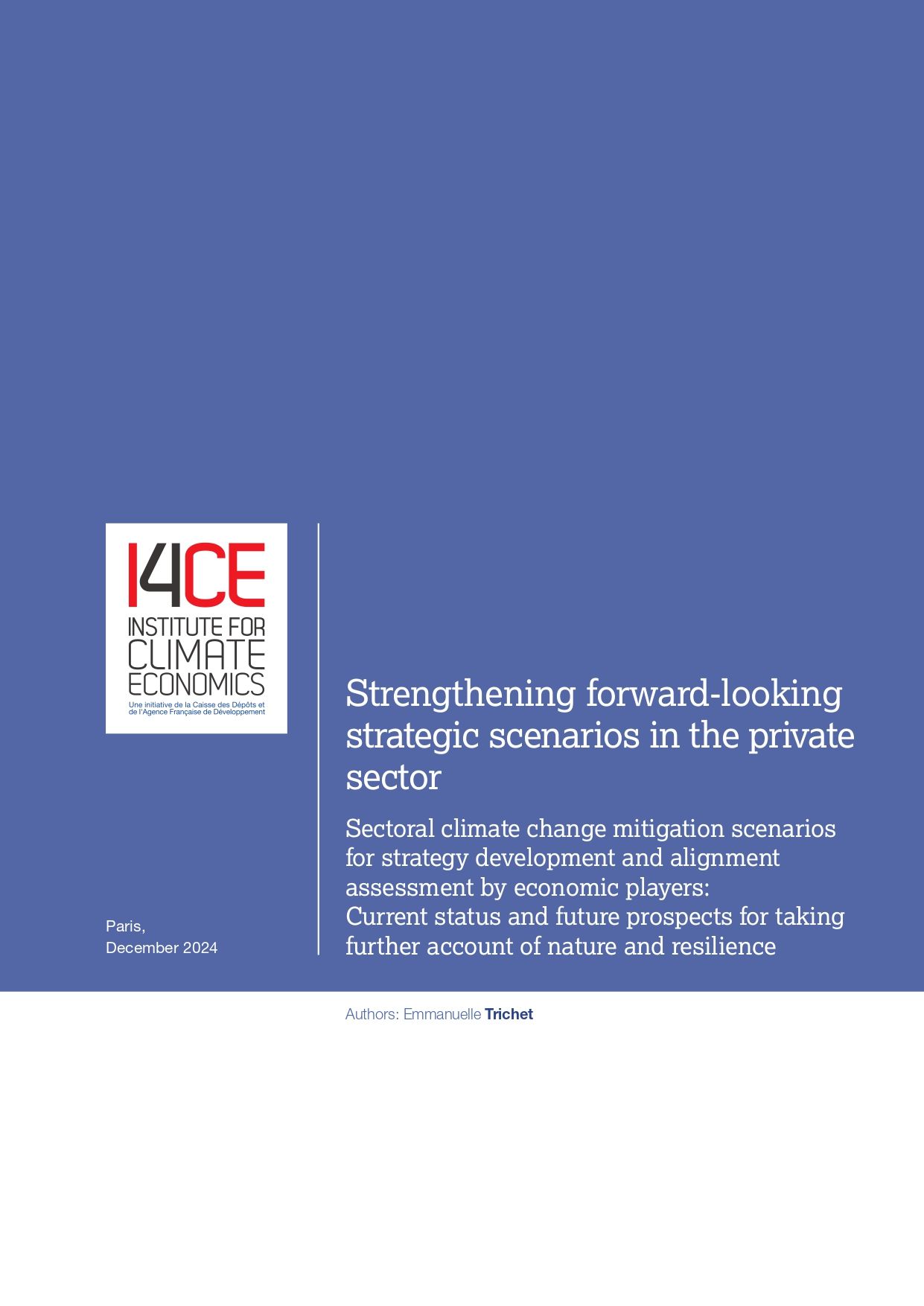Strengthening forward-looking strategic scenarios in the private sector
Sectoral climate change mitigation scenarios for strategy development and alignment assessment by economic players:
Current status and future prospects for taking further account of nature and resilience
All sectors face growing pressures to transform their business models in response to multiple challenges (sustainability issues, technological supremacy, control over natural resources, etc.), while strengthening their competitiveness and resilience.
2024 is the first year to exceed 1.5°C above pre-industrial levels (CCCS 2024); the losses associated with all natural disasters worldwide, mainly due to weather catastrophes, are on an upward trend (Munich Re 2024). Europe has not been spared, with warming twice as fast as the global average and significant costs associated with recent extreme weather events (CCCS and WMO 2024, EEA 2023).
In this context, Economic players would take advantage to further consider the latest scientific insights regarding climate issues and natural resources constraints to assess the risks and opportunities, in order to elaborate policies that strengthen innovation, the competitiveness and resilience of business models. The integration and appropriation of scientific expertise is a strategic challenge throughout organisations.
Collective efforts have so far mainly focused on climate change mitigation. The Paris Agreement sets objectives to limit the increase in global average temperatures, cap greenhouse gas (GHG) emissions and achieve net-zero emissions in the second half of the century. Sectoral climate change mitigation scenarios consistent with the Paris Agreement are central to this, as they incentivise business model transformations at the financial asset, firm and sector levels; economic players use these scenarios to set interim targets and measures that convert temperature goals and GHG emission reductions into policy milestones and design strategic plans accordingly.
This paper gives decision-makers an overview of the current thinking on these scenarios that drive sectoral and business transformation, avenues for improvement, and targeted actions towards a sustainable economy. It recommends that economic players and scenario designers explore the wider opportunities that arise from having greater consistency between their approaches to climate and natural resource constraints, in order to increase resilience and co-benefits:
1. To reach a sustainable economy, greater interoperability of overarching science-based frameworks (Paris Agreement, Global Biodiversity Framework alongside the Sustainable Development Goals) through policy and implementation interlinkages between nature and climate is critical; the objective is to better define strategy around consistent objectives and reinforce each other.
2. More criteria and assumptions should be considered to assess the consistency of climate change mitigation scenarios with the Paris Agreement, in view of earth resilience.
3. An understanding of the way in which nature is considered in these scenarios would also be necessary.
4. Furthermore, faced with complex and uncertain futures, climate change mitigation scenarios could be supplemented with a broader number of strategic options, to ensure competitiveness and resilience in the various possible scenarios
5. Scenario designers should also extend the sectoral and geographical coverage and granularity of scenarios towards greater sector resilience.
6. Economic player efforts should focus on strengthening their forward-looking strategic analyses, prioritising new circular business models within the planetary boundaries, for greater competitiveness, strategic autonomy and resilience.
7. Lastly, scenario designers should further enhance the transparency and comparability of scenarios.
The transition is a complex issue but integrating climate-nature dynamics into their strategies would enable economic players to be best positioned to navigate uncertainty and create long-term value.

